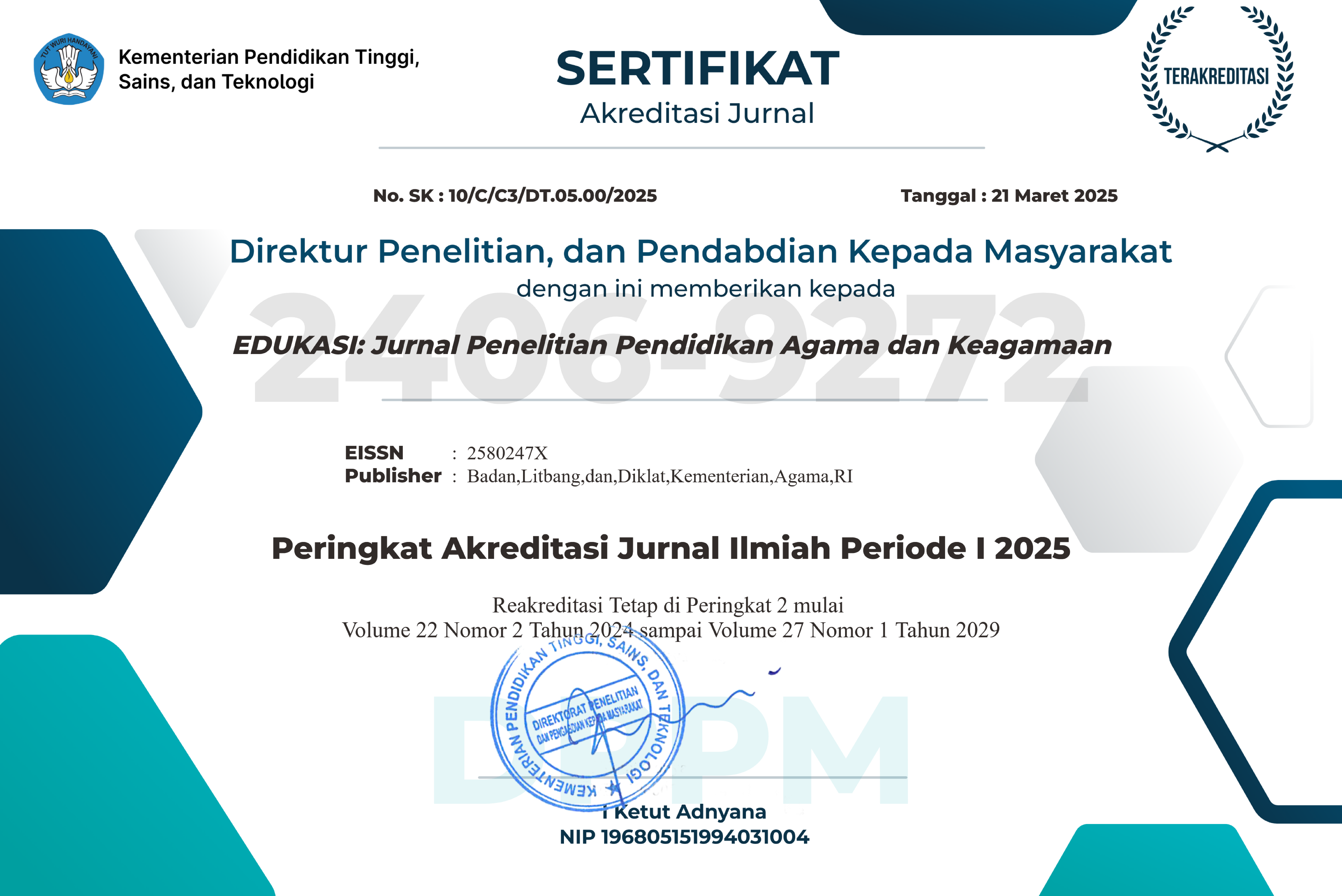Implementation of Religious Education in Character Values in Early Childhood Education Institutions
DOI:
https://doi.org/10.32729/edukasi.v19i3.784Abstract
Abstract
Conceptual discourse and practice of religious education is considered effective as a means of internalizing character values as early as possible for the provision of children's lives in the future. This study describes the implementation of religious education in instilling character values in early childhood by using a survey method in 624 early childhood education in 33 provinces in Indonesia. The results of this study indicate that the majority of early childhood education leaders implement religious education policies in the institutions they lead with a calculated value of (93.37%). Then the implementation of religious education strengthens cognitive knowledge through material content about God by (99.84%), Prophets by (100%), holy books by (100%), houses of worship by (100%), and material content about morals by (100%) 100%). While the affective aspect of religious education includes material content about value planting (100%), planting the value of helping to help (99.84%). While the material that leads to the psychomotor aspect includes material about mutual respect (99.52%), and material about politeness (99.84%). The narrative of the survey results shows that religious education at the early childhood education level has been carried out in accordance with early childhood education standards, namely placing religious education as a means of internalizing character values through material content that strengthens the cognitive, affective and psychomotor abilities of early childhood.
Â
Abstrak
Diskursus konseptual dan praktik pendidikan agama dinilai efektif sebagai sarana internalisasi nilai karakter sedini mungkin untuk bekal hidup anak ke depan. Penelitian ini menjelaskan implementasi pendidikan agama dalam menanamkan nilai karakter pada anak usia dini dengan menggunakan metode survei di 624 lembaga pendidikan anak usia dini yang ada di 33 Provinsi di Indonesia. Hasil studi ini menunjukkan bahwa mayoritas pimpinan pendidikan anak usia dini menerapkan kebijakan pendidikan keagamaan di lembaga yang dipimpinnya dengan nilai perhitungan sebesar (93,37%). Kemudian implementasi pendidikan agama cenderung memperkuat aspek kognitif melalui konten materi tentang Tuhan sebesar (99,84%), Nabi sebesar (100%), kitab suci sebesar (100%), rumah ibadah sebesar (100%), dan konten materi tentang akhlak sebesar (100%). Sedangkan pendidikan agama yang menekankan aspek afektif meliputi konten materi tentang penanaman nilai kejujuran sebesar (100%), penanaman nilai tolong menolong sebesar (99.84%). Sementara untuk materi yang mengarah ke aspek psikomotor meliputi materi tentang saling menghormati sebesar (99,52%), dan materi tentang kesopanan sebesar (99,84%). Narasi hasil survey tersebut menunjukkan bahwa pendidikan agama pada jenjang pendidikan anak usia dini sudah dilaksanakan sesuai dengan standar isi pendidikannya, yaitu menempatkan pendidikan agama sebagai sarana internalisasi nilai karakter melalui konten materi yang memperkuat kognitif, afektif dan psikomotorik anak usia dini.
Downloads
Downloads
Published
Issue
Section
License
Copyright (c) 2021 Evi Sopandi

This work is licensed under a Creative Commons Attribution-ShareAlike 4.0 International License.









